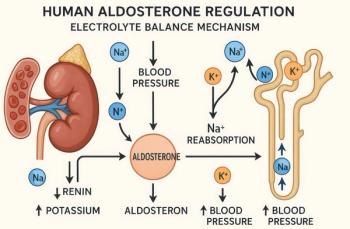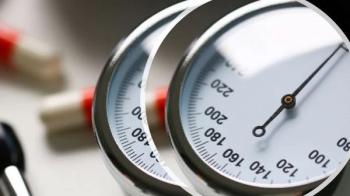
24-Hour Blood Pressure Measurement Urged for Cardiovascular Prediction
LEUVEN, Belgium -- Night-time and day-time blood pressure predicts different cardiovascular endpoints, according to a large multinational study.
LEUVEN, Belgium, Oct. 5 -- Night-time and day-time blood pressure predicts different cardiovascular endpoints, according to a large multinational study.
Both night-time and day-time blood pressure values were predictive, depending on whether fatal endpoints, fatal outcomes combined with non-fatal outcomes, or the part played by hypertension medication were being studied, reported Jan A. Staessen, M.D., Ph.D., of the University of Leuven here, and colleagues, in the Oct. 6 issue of The Lancet.
This study defied common wisdom that the failure of blood pressure to dip at night is a harbinger of cardiovascular complications, they wrote.
Earlier studies have found that a raised nocturnal blood pressure (non-dipping) predicted a higher rate of cardiovascular complications. Despite the apparent agreement among these studies, several potential limitations needed further clarification for the prognostic accuracy of day-versus-night ambulatory blood pressure, the researchers wrote.
For example, many studies considered only fatal outcomes or did not have the power to study cause-specific cardiovascular endpoints, the Leuven team pointed out. Also investigators applied different definitions of dipping status or day and night intervals. The investigators recommended that ambulatory blood pressure should be measured continuously during the entire day.
To determine the predictive value of blood pressure at night over and beyond the day-time value, and whether the night-to-day blood pressure ratio contained any prognostic information beyond the 24-hour blood pressure, the researchers analyzed records of 7,458 people (mean age 56.8, with a median follow-up of 9.6 years).
Patients, given 24-hour ambulatory blood-pressure monitoring, were enrolled in prospective population studies in and international database in Denmark, Belgium, Japan, Sweden, Uruguay, and China.
The investigators calculated multivariate-adjusted hazard ratios for day-time and night-time blood pressure and the systolic night-to-day ratio, while adjusting for cohort and cardiovascular risk factors.
Adjusted for day-time blood pressure, night-time blood pressure predicted total mortality in 983 patients (P
These finding have implications for clinical practice and research, the investigators wrote. Night-time blood pressure predicted mortality and non-fatal outcome, irrespective of treatment status.
The day-time blood pressure independently predicted the composite of all fatal and non-fatal cardiovascular events, especially in untreated participants.
For these reasons, ambulatory blood pressure should be measured during the entire day, they said. "The 24-hour blood pressure, rather than the dipping pattern, should inform clinical decisions," they wrote. "In future publications any categorical representation of the night-to-day ratio should be supported by continuous analyses adjusted for the 24-hour blood pressure and be stratified for treatment status," they recommended.
In an accompanying commentary, Stphane Laurent, M.D., Ph.D., of the Universit Paris-Descartes, wrote that the meta-analysis of individual data challenges the common view that night-time measurements have the best prognostic value and shows that the predictive value of these night-time and day-time values and their ratios depends on the outcome, not day or night measurements.
However, the finding that day-time systolic pressure lost its predictive value among patients being treated for hypertension, whereas medication did not affect night-time systolic blood pressure, suggests a need for an additional meta-analysis of individual data for ambulatory blood pressure, including many patients being treated for hypertension.
This finding for the patients taking hypertension medication raises the question of whether 24-hour blood pressure values from patients treated with medication should be interpreted differently from untreated patients, Dr. Laurent said.
"The results of their study might thus have important clinical implications and significantly affect the next guidelines for ambulatory blood pressure measurement," he concluded.
Newsletter
Enhance your clinical practice with the Patient Care newsletter, offering the latest evidence-based guidelines, diagnostic insights, and treatment strategies for primary care physicians.

































































































































